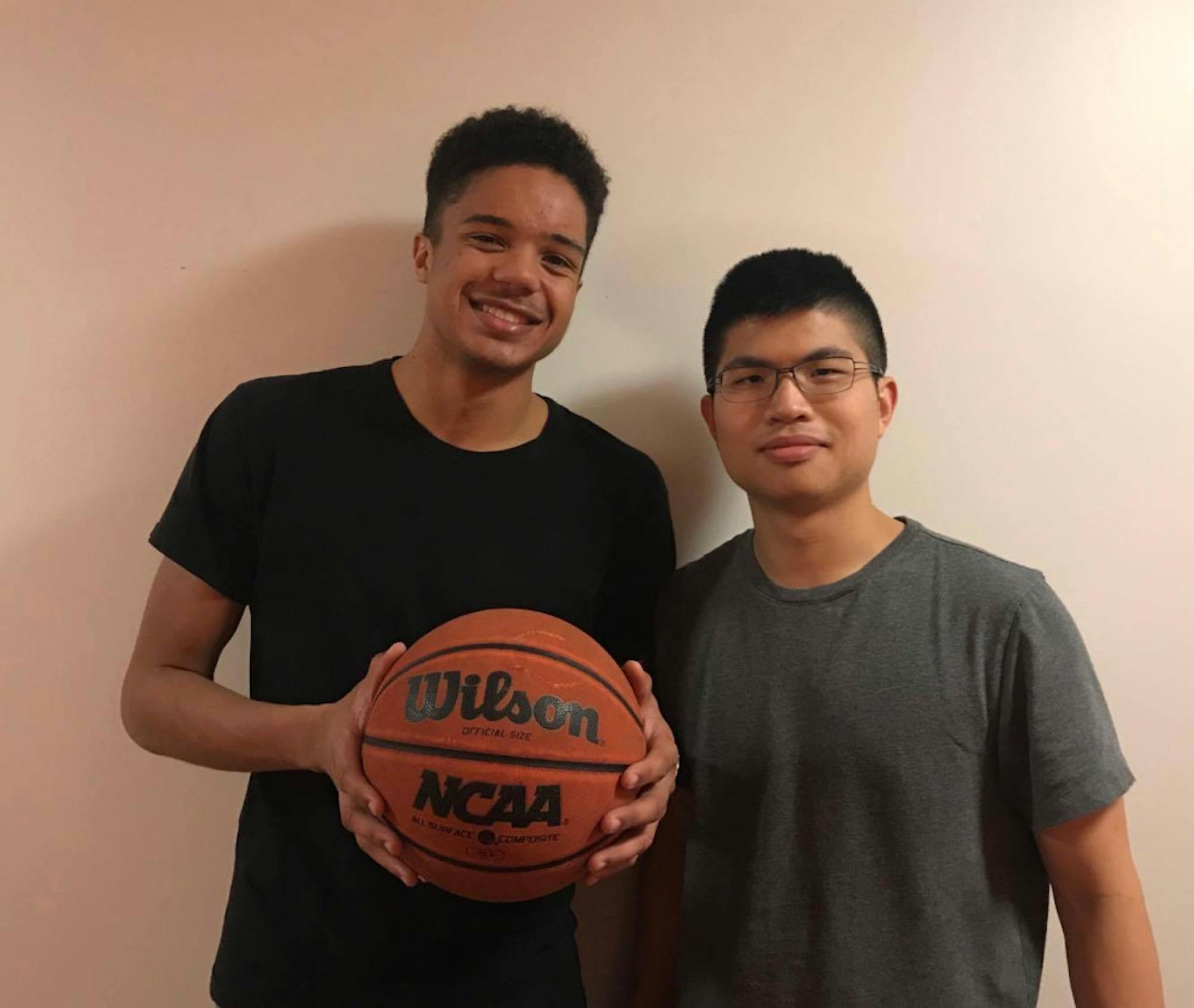Tufts offers athletic outlets for just about everyone, from varsity football to its renowned Harry Potter-inspired quidditch team. Until this semester, however, a club basketball program remained mysteriously absent from campus.
Thanks to the efforts of senior Jordan Kemp, the gap is about to be filled. Although Tufts club basketball’s official recognition remains pending, the program is well on its way to becoming a fixture of the club sports lineup and should be approved within weeks.
“I found it astonishing that, despite [basketball] being one of the top three most popular sports in the country, Tufts did not have a club team,” Kemp said. “Tufts provided almost no outlet for people who wished to play competitive basketball, but didn't have the time or the athletic ability to play for the varsity team.”
The demand for a club basketball team has always been present. Tufts’ popular intramural program in the winter months in the past has featured both recreational and advanced co-ed basketball leagues, with over 100 students participating.
This year, the intramural program extended its basketball offerings further, creating a 3-v-3 league for the fall semester. However, the idea of the intramural leagues has often sounded better than the reality.
“The intramural basketball leagues have been at best inconsistent throughout my time here, forcing students who do want to play to join Boston area leagues, which should not have to be the case,” Kemp said.
Students have supplemented intramural competition with on-campus pick-up games on weeknights and Sunday afternoons. When the weather is amenable, the courts behind Harleston Hall can be swamped with undergraduates, graduate students and Medford and Somerville residents alike, and in the winter, students take the games indoors to the courts of the Steve Tisch Sports and Fitness Center.
Even with all of these opportunities, advanced players like Kemp were still looking for something more. Already in a sort of league of their own, many played varsity basketball in high school and quickly rose to the top of the pick-up game and intramural crowd. While present, the basketball culture at Tufts proved far from robust.
Over the course of Kemp’s first three years on campus, it became clear that many Jumbos sought to take advantage of the friendly competition and appreciated the well-deserved study break that the game offers.
“There was plenty of interest within the Tufts community. More people than I had expected came to tryouts, so finding interested people has not been a problem. As far as finding competition, I basically started where Dan Jacobini (LA '17) left off. Last year he would take groups of his friends to go play other schools' teams. He just gave me all his contacts, and so I've continued to reach out to them,” he said.
Last year, recognizing that others would be interested in doing more to advance their interests in the game, Kemp promoted the idea of the Tufts Basketball Club. Originally, the group started as a social forum for basketball enthusiasts to get together and talk about developments in the NBA and the NCAA.
Junior Steven Isett, the captain of the championship-winning team for the 3-v-3 intramural league this fall and member of the new club team, explained how the group originally came together.
“Last year, Jordan [Kemp] set up a group for students to hang out and talk about basketball, but it was over the summer when [they] actually started putting the team together and practicing,” Isett said.
Since then, Kemp’s brainchild has blossomed. In late September, the club’s founding members hosted two separate tryouts.
“We had roughly 30 guys tryout or express intent to tryout. The turnout was awesome,” he said. “More than I expected. The ability level of our guys is also great, which is a shame because, in my opinion, Tufts would have a very good, competitive club team if it had the institutional support.”
Of those who tried out, three first-years made the team and have provided a fresh perspective. Never knowing Tufts without club basketball, the first-years are appreciative of the efforts of the team’s four seniors to help lead practices and cheer them on during games.
With the team set, Kemp has been running practices twice per week on Thursday nights and Saturday afternoons. Despite being unable to host home games until the group is officially approved by Tufts, the team has already played two games in the Boston area. The first, at Northeastern on Oct. 22, was more than just a test run.
After travelling to Northeastern together on the T, the Jumbos scored a comeback win against a well-established club program.
“We were down by 11 at the half and battled back,” Isett said. “Northeastern has had a club team forever, 50 years at least — they were athletic and they were big, but in terms of raw skill we were better than them.”
This past Wednesday, the club team travelled to Harvard and lost, but until Kemp is able to organize another local matchup, the team will be forced to play the waiting game.
“There is no schedule. Membership with the NCBBA [National Club Basketball Association] costs $800 annually, which is unreasonable to ask a team of 15 college students alone to pay for. We essentially schedule games with local Boston schools, such as BU, BC, Harvard and Northeastern on a per-game basis. Tournaments are the same deal in terms of costs, except we can, and have, joined wait-lists for free.”
Isett added that he does not believe that it is likely that Tufts will fund the team this year, but hopes that it will in the future.
“Finding a way to fund ourselves is pretty tough,” Isett said.
Kemp cites both the lack of funding and the lack of gym space as the two major challenges for the program. Space to play through the cold Boston winters is limited because the program must work around the varsity men’s and women’s basketball and volleyball seasons as well as offseason indoor training for other varsity sports.
“We have to share the court space with people playing pick-up, so we rarely have the crucially necessary time and space to practice independently as a team,” Kemp said.
Despite all of these challenges for the fledgling club basketball team, Tufts’ competitiveness is a testament to its high-quality player pool.
“I’d assume the bigger schools are going to be better simply because there are more people to pick from,” Isett said.
The skill disparity was not on display against Northeastern, where the Jumbos proved more than able to hold their own.
While it remains to be seen whether the team can be fully integrated into the fold of Tufts’ club sports program, the group is well on its way and should only expect to gain popularity in the coming years.
Given the early successes of the men’s club program, Kemp has also expressed interest in forming a women’s club team and asks for those interested to reach out to him. Despite juggling a senior thesis and applying for grad school, Kemp’s enthusiasm for the program has not waned.
“My expectations are pretty high. I think our team has some of best raw talent among schools I have seen," Kemp said. "Between this and last year, we have either beaten, or stayed competitive with every team we have played, including large state [schools] that we have played such as Penn State and University of New Hampshire, despite having a team with much less structure and institutional support.”
Tufts club basketball is a slam dunk among students

Jordan Kemp (left), LA '18, captain and founder, and Mathew Lee (right), '18, member of Tufts Club Basketball team are pictured.





